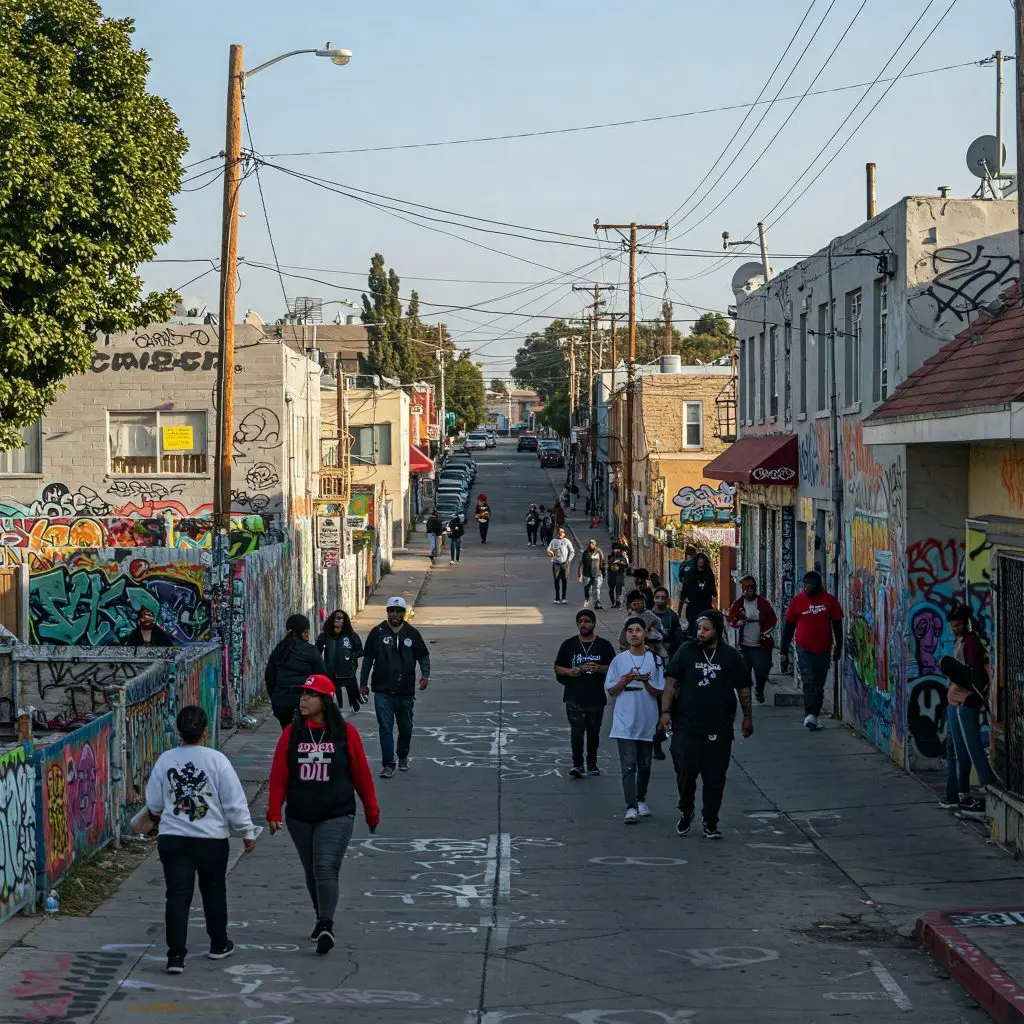Boston Inflation Budgeting & Real Estate Investment Guide 2025: City-Specific Strategies
Facing elevated inflation in 2025, Bostonians need targeted financial planning and informed investment strategies to protect and increase their wealth. With its robust education, healthcare, and technology sectors, Boston has unique dynamics that both cushion and amplify inflationary pressures. This comprehensive guide explores how Boston residents and investors can budget effectively and capitalize on emerging real estate opportunities.
- Boston Inflation Budgeting & Real Estate Investment Guide 2025: City-Specific Strategies
- 1. Boston’s Economic Indicators & Inflation Trends
- 2. Boston’s Local Cost of Living & Budgeting Under Inflation
- 3. 2025 Boston Real Estate Market Trends
- 4. Key Neighborhoods & Real Estate Opportunities (With District Analysis)
- 5. Boston’s Regulatory & Tax Environment
- 6. Urban Rental Property Investment Strategies
- 7. Boston’s Population Growth & Economic Drivers
- 8. Inflation Hedging with Local Real Estate
- 9. Infrastructure, Transit, and Real Estate Value
- 10. Current 2025 Economic Forecast & City Growth Projections
- 11. Local Business Climate & Investment Incentives
- 12. Boston Success Stories & Case Studies
- 13. Summary: Actionable Framework for 2025
1. Boston’s Economic Indicators & Inflation Trends
- 2025 Inflation Rate: Projected at 4.7% (above national average, per BLS Massachusetts CPI Reports).
- Population Growth: Estimated 692,000 (steady year-on-year growth of 0.7%, per Boston Planning & Development Agency 2025 Outlook).
- Job Market: Unemployment at 3.4% driven by healthcare, biotech, university, and tech sectors.
- Median Household Income (2025): $92,650 (up 3.2%).
- Median Home Price (2025): $730,000 (5.8% YoY increase).
2. Boston’s Local Cost of Living & Budgeting Under Inflation
Boston’s high cost of living is acutely felt in housing, utilities, and transportation, all deeply impacted by inflation. Budgeting in 2025 requires prioritizing essentials, tracking utility surcharges, and anticipating further price increases.

- Housing: Rents for a two-bedroom average $3,300/month (Downtown: $3,750; Dorchester: $2,400).
- Utilities: Electricity up 18% since 2022 due to regional energy supply constraints.
- Transport: MBTA pass (monthly): $90 standard, up 7% YoY.
- Groceries: CPI for food up 5.3% since 2023; shift to local markets can offer savings.
Boston Inflation Budgeting Checklist:
- Lock in fixed-rate mortgages or leases to hedge against further rent increases.
- Pursue energy-efficiency upgrades – many districts offer rebates (see Mass Save).
- Use MBTA commuter benefits if available via employers to offset transit inflation.
- Track monthly spending via local bank apps or budgeting tools designed for Boston’s categories.
- Shop local farmers’ markets in neighborhoods like Jamaica Plain or Roslindale for cost-effective produce.
3. 2025 Boston Real Estate Market Trends
Despite higher inflation, Boston’s housing market remains tight due to limited land, strong population growth, and constrained new construction. Urban rental properties stand out as the most resilient asset class due to consistently high demand.
Need capital? GHC Funding offers flexible funding solutions to support your business growth or real estate projects. Discover fast, reliable financing options today!
Test Your Expertise: The Complexities of the 1031 Exchange

As a sophisticated real estate investor, you understand that the 1031 Exchange is a cornerstone strategy for tax deferral and wealth accumulation. But beyond the basics, the intricacies of the 1031 Exchange rules can pose significant challenges. This quiz is designed to test your in-depth knowledge and highlight critical nuances that separate casual investors from true experts in 1031 Exchange transactions.
Instructions: Choose the best answer for each question.
⚡ Key Flexible Funding Options
GHC Funding everages financing types that prioritize asset value and cash flow over lengthy financial history checks:
-
Bridge Loans: These are short-term loans used to "bridge the gap" between an immediate need for capital and securing permanent financing (like a traditional loan or sale). They are known for fast closing and are often asset-collateralized, making them ideal for time-sensitive real estate acquisitions or value-add projects.
-
DSCR Loans (Debt Service Coverage Ratio): Primarily for real estate investors, these loans are underwritten based on the property's rental income vs. debt obligation ($\text{DSCR} = \text{Net Operating Income} / \text{Total Debt Service}$), not the borrower's personal income or tax returns. This offers flexibility for those with complex finances.
-
SBA Loans: The Small Business Administration (SBA) guarantees loans offered by partner lenders. While providing excellent terms (long repayment, lower rates), the application process is typically slower than private/bridge funding, often making them less suitable for immediate needs. SBA eligibility heavily relies on the DSCR metric for repayment assessment.
🌐 Learn More
For details on GHC Funding's specific products and to start an application, please visit their homepage:
The Ultimate DSCR Loan for Rental Property Quiz

Are you looking to expand your real estate investment portfolio? A DSCR loan might be the perfect tool to help you achieve your goals without relying on traditional income documentation. Test your knowledge with this quiz to see if you're ready to master the intricacies of a DSCR loan for rental property.
- Vacancy Rate: Under 4% citywide; below 2% in desirable neighborhoods such as Back Bay, South End, and Beacon Hill.
- Rental Yields: 4-6% net in high-demand areas; 7%+ in emerging neighborhoods with investment upside.
- New Construction: Focused on mixed-use and transit-oriented developments (notably in Allston, Seaport, and South Boston).
- Commercial Real Estate: Office demand remains soft; retail rebounding in neighborhoods with high walkability.
4. Key Neighborhoods & Real Estate Opportunities (With District Analysis)
Back Bay, Beacon Hill & South End (Prime Urban Core)
- Profile: Historic, walkable, premium amenities.
- Rents: Studios $2,600+, 2-BR $4,000+.
- Investor Tip: High liquidity and steady appreciation; ideal for luxury or furnished rentals.
Allston/Brighton (Student & Young Professional Hub)
- Profile: Boston University & Boston College proximity, younger demographic, cultural diversity.
- Growth: Numerous new developments and conversions; rental demand remains strong year-round.
- Yields: 5-6% (multi-families, small apartment buildings); popular for house-hacking.
Jamaica Plain, Roslindale, & Dorchester (Emerging Neighborhoods)
- Profile: Rising stars, strong community feel, accelerating infrastructure investments.
- Opportunities: Duplexes, triplexes, and mid-sized apartment buildings; urban infill projects eligible for city grants.
- Yields: 6-7.5% possible; strong demand from working families and city employees.
Seaport District & Fort Point (Mixed-Use & Innovation)
- Profile: Rapidly redeveloped, tech and biotech cluster, luxury condos and creative office.
- Rents: Premium, but steady demand from corporate relocations.
- Investability: High price points, but significant upside as Boston’s “second downtown” matures.
5. Boston’s Regulatory & Tax Environment
- Property Taxes: 2025 residential average: 1.05% (relatively modest by national standards).
- Investment Incentives: Owner-occupant relief programs, support for multi-family conversions, and energy efficiency tax breaks.
- Rent Control: Currently not citywide, but ongoing debates—investors should track policy movements.
- Short-term Rental Regulation: AirBnB/unit registration and legal compliance is strict; favor long-term tenants.
6. Urban Rental Property Investment Strategies
As inflation curtails household buying power, demand swells for urban rentals, especially from:
- Students at over 30 Boston-area colleges/universities
- Young professionals in tech and finance sectors
- Healthcare workers at Mass General, Beth Israel, and Brigham & Women’s
Practical Opportunity Example (2025):
✅ Small Business Resources
-
SBA – Small Business Administration
https://www.sba.gov - SCORE Mentors (Free Mentoring & Workshops)
https://www.score.org - Small Business Development Centers (SBDC)
https://americassbdc.org
Are You an SBA Real Estate Loan Expert?

Test your in-depth knowledge on using SBA Loans for owner-occupied commercial Real Estate acquisition. These questions delve into the critical details that can impact your business's growth and financial strategy.
In Jamaica Plain, a 3-family apartment building purchased at $1.45M in late 2024 yields $7,200/month gross income, with strong appreciation as the MBTA Green Line Extension improves commute times.
Best Practices for Urban Rental Properties:
- Opt for neighborhoods close to transit lines (e.g., Orange/Red/Green Line access).
- Consider value-add properties: renovating to add bedrooms or convert basements boosts returns.
- Secure longer-term leases to stabilize cash flow and offset inflation volatility.
- Take advantage of city energy retrofit grants to reduce ongoing operating costs.
7. Boston’s Population Growth & Economic Drivers
- Education: Host to Harvard, MIT, BU, Northeastern—270,000+ student population stabilizes rental demand.
- Healthcare/Biotech: $50+ billion sector anchors job creation and inbound skilled migration.
- Technology & Clean Energy: New clusters in Seaport, Kendall Square, and along the Mass Pike expansion corridor.
8. Inflation Hedging with Local Real Estate
✅ Real Estate Investor Resources
-
AirDNA (Short-Term Rental Data)
https://www.airdna.co - Rentometer (Rent Comps)
https://www.rentometer.com - Zillow Research & Data
https://www.zillow.com/research
DSCR Loan IQ Quiz!

Test your knowledge of Debt Service Coverage Ratio (DSCR) loans!
Boston real estate excels as an inflation hedge because lease rates adjust regularly, and urban land scarcity supports capital appreciation. Multi-unit residential is favored for balancing cash flow and appreciation, particularly in high-demand, walkable neighborhoods.
9. Infrastructure, Transit, and Real Estate Value
- MBTA Green Line Extension: Elevated values in Union Square, Medford, and Somerville. New rental opportunities abound.
- Seaport Infrastructure: New tunnels and ferry services connect emerging luxury—and rental—markets.
- Allston I-90 Interchange Project: Watch for mixed-use and rental spikes as construction opens more land for development.
10. Current 2025 Economic Forecast & City Growth Projections
- Steady GDP Growth: 2.4% projected (stronger than most Northeast metros).
- Inward Migration: Continues, primarily highly-educated workers.
- Housing Constraint: Lack of new supply continues to push up rents and values.
- Inflation Risks: Moderating, but utility and insurance costs remain significant budget items.
11. Local Business Climate & Investment Incentives
- Business Growth: Startup formation near 2018 highs, especially in fintech and biotech.
- Opportunity Zones: Neighborhoods in South Boston, East Boston, Dorchester for tax-advantaged investments.
- City Grants: Targeted at energy retrofit and small landlord stabilization.
12. Boston Success Stories & Case Studies
Case Study 1: In Dorchester, local investor purchased a 4-unit building in 2021. By 2025, net rents have increased 23%, while leveraging city grants to lower utility bills.
Case Study 2: Young couple renovated a Brownstone in South End with help from local rehab incentives, adding $450,000 in equity in under three years after transit improvements sparked neighborhood revitalization.
13. Summary: Actionable Framework for 2025
- Budget proactively: Plan for continued inflation in housing and utilities. Lock fixed costs and pursue city grants to offset increases.
- Urban rental properties are the inflation hedge of choice: Focus on multi-families and small apartment buildings near transit, in emerging districts.
- Track city infrastructure: Invest near MBTA extensions, Seaport, and I-90 Allston projects for appreciation and stable returns.
- Monitor local policies: Watch regulatory updates for rental caps, taxes, and landlord incentives.
- Diversify: While rental property dominates in 2025, mixed-use and energy-efficient retrofits offer additional upside.
Boston’s inflation-resilient real estate and proactive budgeting options can protect and grow portfolios even as prices climb. With the right strategy, this storied city offers abundant opportunities in 2025 and beyond.
Get a No Obligation Quote Today.



